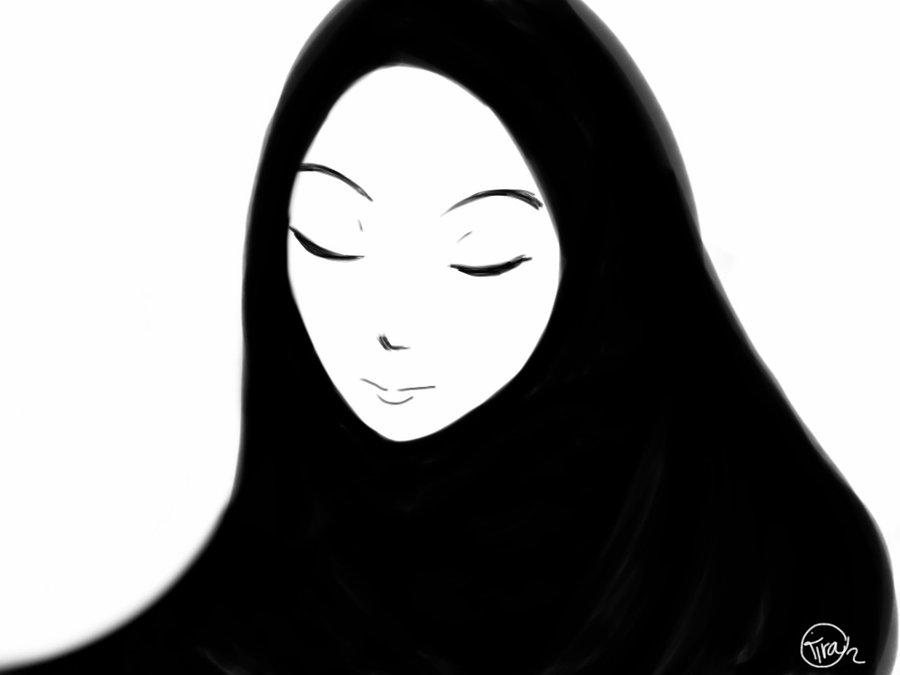The International Women’s Day (IWD) is celebrated on March 8 in remembrance of Clara Zetkin who declared the International Socialist in a conference of Copenhagen in 1910. She was a German activist of the Social Democratic Party of Germany (SPD). The right of gender equality is above any ideology because the ideological regimes under Nazi, communism and Islam had no practical proof of equal chances for women in holding public offices under their rules. Struggle for equal rights of women to hold public offices, their right to vocational training, and an end to inequity in many spheres was the initial goal.
The Women’s Day is since commemorated and a national holiday in some countries. It symbolises an age-old struggle of women of all ethnic, cultural and social backgrounds against the long existing gender discriminations due to the patriarchal and religious effects. Despite many achievements, gender discrimination has left roots in the societies affected by the Abrahamic religions from which Islam blatantly emanates the most misogynistic heritage. Gender equality does not match Islam because the teaching and doctrine of Islam consider women in general less worthy than men.
The Women’s Day becomes an imminent élan in its clash with Islamic misogynist norms and Islamic regimes. If this day is rooted in the struggles against the Dark Ages of European Church and in the demand for “liberty, equality, fraternity” during the French Revolution, today it has tangibly turned to be in conflict with misogynistic Islam.
International Women’s Day has originally assumed a new global dimension for the establishment of women’s rights in the developed and developing countries alike. Nevertheless, since its advent of political Islam in 1979 in Iran, Islam becomes a serious barrier on the way of achieving of women’s rights. Despite many globally coordinated efforts, the international community, including the United Nations, ignore the fate of hundreds of millions of Muslim women who happen to be born in the Islamic world and are the unprotected victims of Islamic states.
Today, the horrendous shadow of a monster called political Islam has spread its wings over a great sphere of the world, where hundreds of millions of women have fallen into its clutches. The nest of this bird of prey is the Mullahs-occupied territory of Iran. The bird of prey is the Islamic regime composed of criminals with 38 years of crime against humanity. Their clutches are new swords of Islam over the conquered people of Iran.
The Islamic regime with all characters of early occupiers of Islamic herds of the 7th century in Iran kill, torture, rape “infidel” Iranian men and women and loot all Iranian national wealth as the Islamic herds did at that time. Sexual torture is another tool to crush the political prisoners in Iran, men and women are victims alike. Based on the Islamic justification, “infidel” female prisoners are raped by torturers or guards especially before execution. Such an inspirational rape was allowed with the females of a conquered “infidel” tribe at the time of the Prophet, as the women were considered as spoils of war.
Inspired from one of the Prophet Muhammad’s marriages with the wife of his adopted son, in September 2013 Parliamentarians in Iran have passed a bill to protect the rights of children which includes a clause that allows a man to marry his adopted daughter while she is as young as 13 years.
In many Islamic countries, women who are victims of rape can be killed by their Muslim families to preserve family honour. The victim of rape is killed because is a means of humiliation for the family. This crime is called Honour Killing and is as a legacy of misogynistic traditions upheld in many Islamised countries. Honour Killings have been reported in Jordan, Pakistan, Lebanon, Syria, Iraq, Turkey, the Persian Gulf countries, and even Muslim communities of western countries.
Female genital mutilation is still vastly practised. It is another old ritual that is considered by the World Health Organisation (WHO) a non-medical procedure. Despite some efforts of the UN, woman genital mutilation is practised in most Islamic countries.
Since the takeover of the Islamic regime in Iran, the physical assaults, arbitrary arrests, acid-throwing, harassment and psychological pressure are the part and parcel of woman’s life in Iran. Besides these arbitrary acts committed by the Islamic regime’s thugs, the nationwide organised Police Morality warn, harass, arrest and punish the so-called “bad-hijab” women, bad- veiled women.
Under PM Moussavi, in 1981 a bill being passed in the Islamic parliament and legalised the obligatory Islamic Hijab. No other dress is for women in Iran allowed unless a veil from head to toe or a headscarf plus mantle. Even non-Muslim women including female politicians of the so-called civilised world have to respect this Islamic dress code. Two notorious examples are the last summer journey of socialist French minister, Mme. Sénégal Royal and some female ministers of the Swedish government to Iran who wore all humiliating Islamic headscarf, despite all of know that Islamic hijab is symbol of gender apartheid and millions of Iranian women are the victims of that.
Over the decencies, conferences, demonstrations, and commemorations have been held globally to reflect on the progress made in woman’s rights. At the time, the advent of political Islam was not predicted, therefore it is time to call for what has not been predicted before and what now happens under the misogynistic Islamic states. The International Women’s Day should now be made a rallying point against the Islamic misogyny, poised to damage the achievements gained in the history of women’s rights.
No international law including the Charter of the United Nations adequately reacts against discriminations against women in the Islamic world although the UN proposes gender equality as a fundamental human right. The UN is reluctant to create standards, programmes, and updated goals for advancing the status of women in the Islamised societies. For example, the UN avoids condemning the enforcement of hijab on women in Iran.
As said, the UN Charter, signed in 1945, was the first agreement to affirm the principle of equality between women and men. However, the Charter was prepared before the advent of the international political Islam. Today, hundreds of millions of women are the victims of political Islam. Consequently, the UN needs to adopt new resolutions to defend the women’s rights in these Islamised societies. Regarding many conclusive reports of discrimination and violation to the fundamental rights of women in Islamic countries, the UN must show concerns.
Hijab is the central concern of political Islam. It symbolises the Islamic power as the Swastika did for Nazism. In this light, all factions of the Islamic regime stand for Islamic hijab as the only of allowed dress code.
Today, a steadily increasing number of Iranian women, Iranian female activists close to communists, socialists, democrats, feminists, and all freedom-loving people follow their struggle against forced hijab in Iran. Their core struggles consists of the idea that Islamic hijab is correlated with misogyny and should not be imposed by a disruptive minority of Islamists against an increasing majority of freedom-loving women.
Let us as a part of the left, secularists, democrats, feminists and freedom-loving human being lined up behind these fair struggles of Iranian women against the most reactionary and misogynistic regime of the world, the Mullahs’ regime. As once Rosa Luxemburg used Women’s Day as a focus for anti-war rallies in 1914 and 1915, let us encourage our women movements.
Promotion of gender equality is not only a responsibility of women, but of all humanity. Not only is it an important factor for participation of women in social and economic development, but also a necessity for a healthy development of the society as a whole. According to psychologists, gender segregation creates frustrations, perversity and aggressiveness with blind obedience, all of which are typical traits of oppressed and islamised societies. Daily examples of gender discrimination in Iran show that the regime by imposing lower status for women has reduced the woman’s role to a means of procreation, what in actuality correlates with the repression of the whole society.
No equal right between man and woman has ever been respected under totalitarian regimes, from the right far to the religious and all the way to the recent communist regimes, they promote a patriarchal norms. As seen in the modern societies, the struggle for democracy, social justice, peace, secularism, and flourishing progress is not separated from the gender equity regardless the form of state.
On this International Women’s Day, let us re-dedicate ourselves to the hundreds of millions of women who are the conscious or unconscious victims of Islamic misogyny. Much should be accomplished to put into place legal foundations to urge the international community to remember that it is the responsibility of all of us to defend their democratic and secular right, to live in dignity, being freed from gender inequality.
While March 8th was historically a secular struggle against the patriarchal dominance of Catholic Church in the West, it is now rather a worldwide struggle against the misogyny of Islamic regimes that are propagating the most harms to women. In this perspective, the classic struggle against Catholic Church must be adapted to a persistent struggle against the influence of Islamic misogyny.


